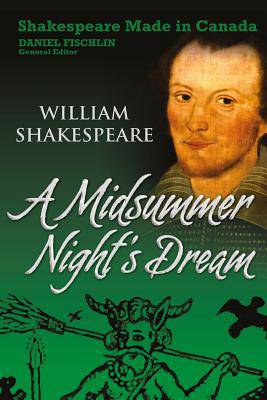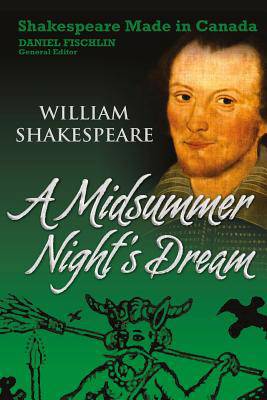
- Afhalen na 1 uur in een winkel met voorraad
- Gratis thuislevering in België vanaf € 30
- Ruim aanbod met 7 miljoen producten
- Afhalen na 1 uur in een winkel met voorraad
- Gratis thuislevering in België vanaf € 30
- Ruim aanbod met 7 miljoen producten
Omschrijving
Human identities unravel under the light of the Midsummer moon . . .
Shakespeare's popular comedy probes both the light and the dark side of desire, as unseen beings manipulate individual perceptions in the forest beyond the civilized world. Andrew Bretz's thought-provoking introduction to the play reminds us of the early modern concept of fairies: far from the ethereal creatures of the Victorian imagination, we see them here as amoral, energetic, and dangerous.
While fairies may have come and gone in the course of 150 years of Canadian productions of A Midsummer Night's Dream, this edition highlights how performances in Canada and elsewhere in the world have embraced the multitude of possibilities inherent within this uncanny "shaping fantasy."
... includes concise "Character Synopses", boldfacing the names of all characters so that relationships between and amongst them are clear, and equally helpful is the "Plot Synopsis" which follows the "Character Synopses", summarizing the scene-by-scene action in each act.... Preceding the actual text of [the] play, there is "A Note on the Text", providing information about the quarto and folio publications ... and explaining the challenges faced by editors of any new editions of Shakespearean text.... Clearly-referenced footnotes clarify unfamiliar words, expressions, and provide explanatory material. The notes are comprehensive, referring to both print and electronic resources which were consulted.... Rather unusual, I thought, was the section entitled "Ten Tips for Reading Shakespeare", which offered insights into a diverse range of subjects, including concepts of social status, how words might have been pronounced in Shakespeare's time, and Shakespeare's rich use of Classical and Biblical references. --Joanne Peters, CM Magazine, January 2017
Specificaties
Betrokkenen
- Uitgeverij:
Inhoud
- Aantal bladzijden:
- 150
- Taal:
- Engels
- Reeks:
Eigenschappen
- Productcode (EAN):
- 9780988129368
- Verschijningsdatum:
- 19/05/2015
- Uitvoering:
- Paperback
- Formaat:
- Trade paperback (VS)
- Afmetingen:
- 152 mm x 229 mm
- Gewicht:
- 226 g

Alleen bij Standaard Boekhandel
Beoordelingen
We publiceren alleen reviews die voldoen aan de voorwaarden voor reviews. Bekijk onze voorwaarden voor reviews.










